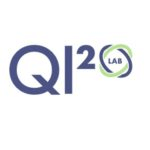Quantum Information and Inference (QI2) Laboratory
 Profile Leader Team Projects Publications Contact Website |
ProfileJan Kołodyński, PhD Quantum information science is a research area that investigates quantum systems as natural and fundamental building-blocks for transmitting, storing and processing information. It explores how to exploit quantum properties of light and matter in order to perform tasks of communication, computation and sensing in the most efficient and, sometimes, also completely secure fashion. However, as quantum mechanics is probabilistic by nature and, moreover, quantum systems are very fragile—being vulnerable to any external noise—advanced statistical inference and signal processing techniques turn out to be essential in order to exploit the full potential of any real-life quantum device. Quantum inference theory studies how to tailor such data inference tools so that quantum properties of systems can not only be accounted for but also extensively benefited from. Within QI2-lab we primarily work on quantum metrology and sensing tasks. We develop the fundamental theory of quantum estimation protocols in order to focus on their optical implementations, with a particular interest in quantum sensors based on atomic-spin ensembles. We also seek novel practical solutions in quantum information tasks of cryptography and communication, while exploring the applicability of their state-of-art photonic implementations. Last but not least, we work on quantum software—our aim is to create an open-source library that will encompass various “quantum-tailored” data inference tools (such as filtering, compressive sampling or machine learning) so that they can be directly implemented in quantum control and sensing experiments that involve continuous-time measurements. |
||||||||||||
LeaderResearch experience 2018-: Junior Group Leader, Centre for Quantum Optical Technologies (QOT), Warsaw, Poland. 2014-2018: Postdoctoral Researcher, Institute of Photonic Sciences (ICFO), Barcelona, Spain. 2010-2014: Research Assistant, Faculty of Physics, University of Warsaw, Poland. Education 2010-2014: PhD in Physics (thesis), Faculty of Physics, University of Warsaw, Poland. 2008-2009: MA Theor. Physics (CASM – Part III Maths), DAMTP, Cambridge, UK. 2007-2008: Part II General in Computer Science, Comp. Labs, Cambridge, UK. 2004-2007: BA in Natural Sciences (Physics), St John’s College, University of Cambridge, UK. Selected prizes and scholarships 2018-2020: HOMING programme laureate, Foundation for Polish Science, Poland. 2015-2017: Maria Skłodowska-Curie European Fellowship, ICFO, Spain. 2014-2015: START Scholarship, Foundation for Polish Science, Poland. 2004-2008: Cambridge European Trust Scholarship, Cambridge, UK. |
|||||||||||||
TeamLeader Postdocs / employee PhD Students |
|||||||||||||
Selected projects
|
|||||||||||||
Selected publications
|
|||||||||||||
ContactJan Kołodyński, PhD |
The project is financed under the European Funds for Modern Economy programme, co-financed by the European Union.
Project tasks and expected results: Development of new quantum technologies related to secure communication methods and new quantum sensors based on, among others, Rydberg atoms
Target groups: scientists through research, companies through commercialization of results, society through popularization activities
Project value: 30,000,000 PLN
Intermediary institution: Foundation for Polish Science, https://www.fnp.org.pl/